γ-Butyrobetaine is a proatherogenic intermediate in gut microbial metabolism of L-carnitine to TMAO
- PMID: 25440057
- PMCID: PMC4255476
- DOI: 10.1016/j.cmet.2014.10.006
γ-Butyrobetaine is a proatherogenic intermediate in gut microbial metabolism of L-carnitine to TMAO
Abstract
L-carnitine, a nutrient in red meat, was recently reported to accelerate atherosclerosis via a metaorganismal pathway involving gut microbial trimethylamine (TMA) formation and host hepatic conversion into trimethylamine-N-oxide (TMAO). Herein, we show that following L-carnitine ingestion, γ-butyrobetaine (γBB) is produced as an intermediary metabolite by gut microbes at a site anatomically proximal to and at a rate ∼1,000-fold higher than the formation of TMA. Moreover, we show that γBB is the major gut microbial metabolite formed from dietary L-carnitine in mice, is converted into TMA and TMAO in a gut microbiota-dependent manner (like dietary L-carnitine), and accelerates atherosclerosis. Gut microbial composition and functional metabolic studies reveal that distinct taxa are associated with the production of γBB or TMA/TMAO from dietary L-carnitine. Moreover, despite their close structural similarity, chronic dietary exposure to L-carnitine or γBB promotes development of functionally distinct microbial communities optimized for the metabolism of L-carnitine or γBB, respectively.
Copyright © 2014 Elsevier Inc. All rights reserved.
Conflict of interest statement
Drs. Wang and Levison are named as co-inventors on pending patents held by the Cleveland Clinic relating to cardiovascular diagnostics. Dr. Tang received research grant support from Abbott Laboratories, and served as consultants for Medtronic Inc and St. Jude Medical. Drs. Hazen and Smith are named as co-inventors on pending and issued patents held by the Cleveland Clinic relating to cardiovascular diagnostics and therapeutics. Dr. Smith reports he has been paid as a consultant by Esperion, and has the right to recieve royalty payments for inventions from Cleveland Heart Lab and Esperion. Dr. Hazen reports he has been paid as a consultant or speaker by the following companies: Cleveland Heart Lab, Inc., Esperion, Liposciences Inc., Merck & Co., Inc., Pfizer Inc., and Proctor & Gamble. Dr. Hazen reports he has received research funds from Abbott, Cleveland Heart Lab, Liposciences, Inc., Proctor & Gamble, and Takeda. Dr. Hazen has the right to receive royalty payments for inventions or discoveries related to cardiovascular diagnostics and therapeutics from Cleveland Heart Lab, Inc., Esperion, Frantz Biomarkers, and Liposciences, Inc.
Figures
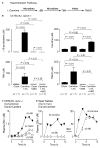
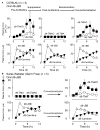
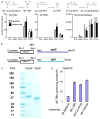

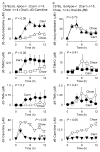
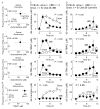

Comment in
-
Mammalian-microbial cometabolism of L-carnitine in the context of atherosclerosis.Cell Metab. 2014 Nov 4;20(5):699-700. doi: 10.1016/j.cmet.2014.10.014. Epub 2014 Nov 4. Cell Metab. 2014. PMID: 25440049
References
-
- Aurich H. Composition of the amino acid pool of Neurospora in deficiency of growth substance. Acta biologica et medica Germanica. 1966;16:123–134. - PubMed
-
- Bennett BJ, de Aguiar Vallim TQ, Wang Z, Shih DM, Meng Y, Gregory J, Allayee H, Lee R, Graham M, Crooke R, Edwards PA, Hazen SL, Lusis AJ. Trimethylamine-N-oxide, a metabolite associated with atherosclerosis, exhibits complex genetic and dietary regulation. Cell metabolism. 2013;17:49–60. - PMC - PubMed
-
- Bremer J. Carnitine--metabolism and functions. Physiological Reviews. 1983;63:1420–1480. - PubMed
Publication types
MeSH terms
Substances
Grants and funding
LinkOut - more resources
Full Text Sources
Other Literature Sources
Medical
Molecular Biology Databases

